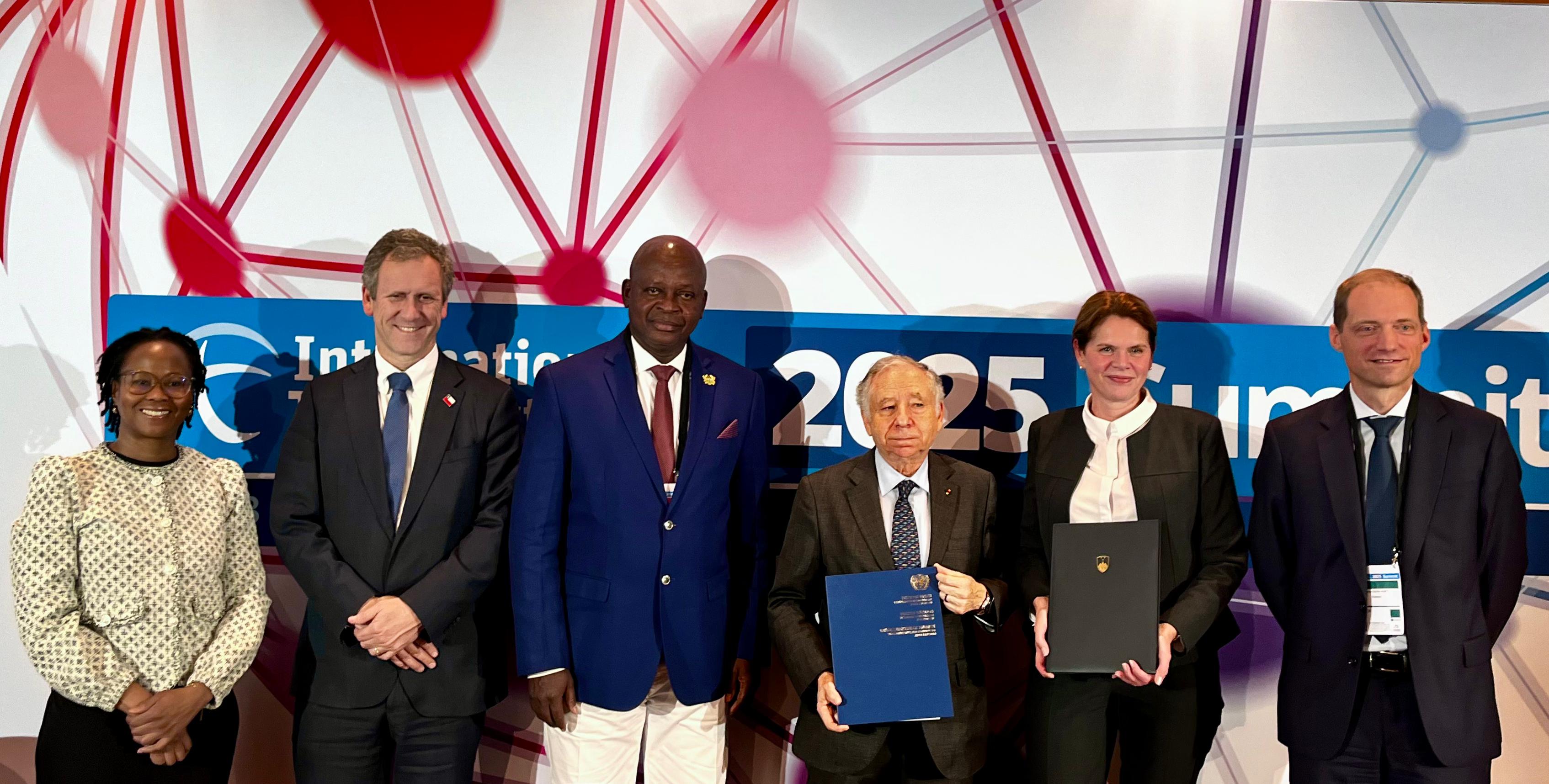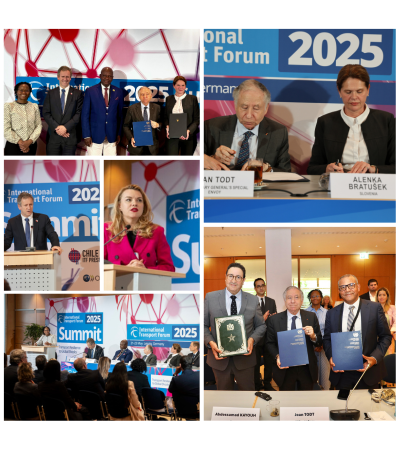
Last week in Leipzig, the United Nations Road Safety Fund (UNRSF) convened a high-level media event at the International Transport Forum (ITF) Summit that brought together ministers, UN leaders and private sector pioneers in a renewed global call to fund road safety. Titled “A Global Call to Invest in Road Safety,” the event brought together ministers, UN leaders, and private sector pioneers to underscore an urgent truth: saving lives on the world’s roads demands stronger investment, and unwavering political will.
The event marked a turning point in global collaboration, with the signing of new Memoranda of Understanding (MoUs) between the UNRSF and the governments of Slovenia and Morocco, both signaling their intent to scale up evidence-based road safety initiatives. These agreements reflect a growing global consensus: that road deaths, often ignored, must be treated as a public health emergency.
From the front lines, government leaders shared hard-won progress and pressing challenges. Ghana’s Minister of Transport, Joseph Nikpe Bukari, spotlighted the heavy toll road crashes take on low-motorisation countries. “We lack the needed resources and technical expertise to enforce road safety and educate our road users,” he said. “We are committed to working with partners who can help us change this reality.” He also announced Ghana’s forthcoming launch of TrafficTech, a digital tool that automatically records violations and issues fines in real time, a move aimed at strengthening enforcement.
Chile’s Minister of Transport and Telecommunications, Juan Carlos Muñoz Abogabir, highlighted the impact of data and enforcement measures supported by the UNRSF. “In Chile, the combination of better road data and enforcement operations led to a 73% increase in fines, and, more importantly, a one-third reduction in traffic deaths in just one year,” he noted.
Slovenia's Minister of Infrastructure, Alenka Bratušek, reinforced her country’s leadership by signing a new MoU on-site. “There is no excuse for road traffic deaths,” she said. “Slovenia is proud to partner with the UNRSF and to invest in solutions that work.”
The day before, Morocco’s Minister of Transport, Mohamed Abdeljalil, and Benacer Boulaajoul, Director of the National Road Safety Agency (NARSA), formalised Morocco’s partnership with the Fund. Their agreement underscores a strategic shift to align road safety with broader development goals, including improved health systems and urban planning.
“We are not short on knowledge. We are short on investment,” said Jean Todt, the UN Secretary-General’s Special Envoy for Road Safety. His call was echoed by Tatiana Molcean, Executive Secretary of the UN Economic Commission for Europe (UNECE), who emphasized the foundational role of road safety in sustainable development. “Road safety is not a charity, it’s one of the smartest, most strategic investments we can make. The return is not abstract; it’s measured in lives saved and stronger systems built.”
The event also featured remarks from Pierre-Martin Huet, Sustainability and Impact Director at Michelin, who spoke on the role of private sector engagement in creating scalable and innovative solutions. His participation reflected the UNRSF’s unique position in bringing together public and private actors to co-finance high-impact road safety initiatives.
Nneka Henry, Head of the UNRSF Secretariat, closed the event by reaffirming “If resilience is the goal, then investing in road safety must be the starting point. Road crashes are a global shock unfolding every few seconds, and unless we act, no journey is truly resilient.”
Building on this momentum, the UN Road Safety Fund will launch its 2024 Annual Report during UNESCAP Road Safety Week in Bangkok, on 2 June 2025. The report will showcase impact, insights, and investment opportunities as the Fund accelerates its support to countries on the frontlines of the global road safety crisis.


Read the article co-signed by UNRSF Board members HERE.
Re live the media event HERE.
